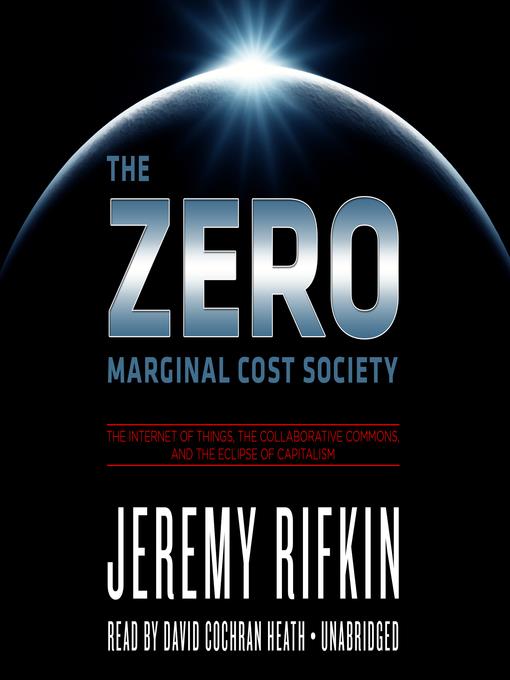
The Zero Marginal Cost Society
The Internet of Things, the Collaborative Commons, and the Eclipse of Capitalism
کتاب های مرتبط
- اطلاعات
- نقد و بررسی
- دیدگاه کاربران
نقد و بررسی

February 24, 2014
The Internet is lowering marginal production costs to nearly zero, futurist Rifkin (The Third Industrial Revolution) declares, making once prohibitively expensive items, services, and activities almost free. Rifkin suggests that scarcity will give way to a future of abundance as humankind learns to share in a “collaborative commons,” thus weakening profits and property rights. “The capitalist era is passing,” he begins grandly, and it “will transform our way of life.” To make his case, Rifkind explores 3-D printing, massive open online courses (MOOCs), green energy, and other micro cases. But all this does not add up to plausible proof for his expansive claims. Rifkin’s rambling, wildly optimistic polemic revisits the proposition that the Internet connects the world in novel ways—not an especially new claim. Stringing buzzwords together like Christmas lights, Rifkin concludes that “the rise of the collaborative commons offers us a path to biosphere consciousness in an empathetic civilization” and a “sustainable cornucopia.” Rifkin’s speculative overreach, peppered with such cloying neologisms as “prosumers” and “homo empathicus,” may spoil the book for serious readers. Agent: Meg Thompson, Einstein Thompson Agency.

























دیدگاه کاربران